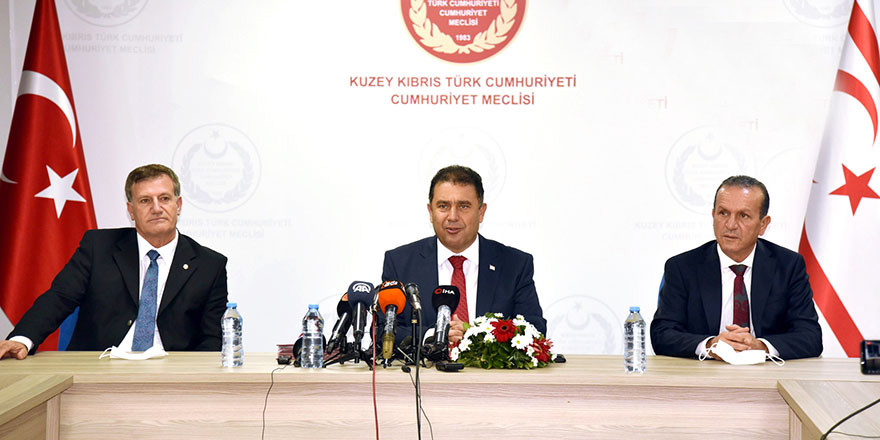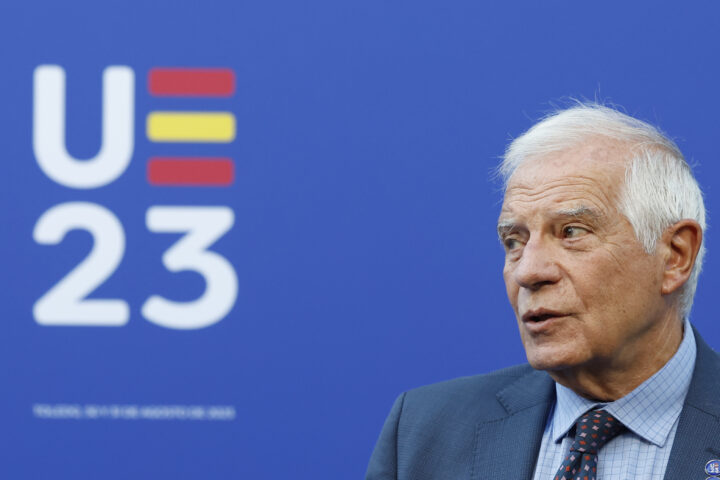Turkish Cypriots are heading for a general election, as no political party in the north can rally the minimum 26 out of 50 assembly seats needed to govern after the ruling coalition collapsed.
It is the sixth coalition to fail in the past seven years, causing political instability and public mistrust.
According to the constitution of the breakaway state in the north, Turkish Cypriot leader Ersin Tatar has 60 days to give the mandate of setting up a new governing coalition to a party leader or a member of the assembly who can rally the support needed.
The sixty-day period ends on 12 December, and if a coalition is not formed by then, Turkish Cypriots will be called to vote.
The ruling coalition in the Turkish occupied north island tendered its resignation on Wednesday, with the Turkish Cypriot community heading for an early election after three years.
The tri-partite coalition of the National Unity Party (UBP)-Democrat Party (DP)-Rebirth Party (YDP), under UBP’s Ersan Saner, is the second shortest-lived coalition in the north, lasting just 10 months in power.
Only an unlikely coalition between the left-wing Turkish Republican Party (CTP) and right-wing UBP, under CTP’s Omer Kalyoncu, can rescue the situation.
This coalition lasted just nine months before collapsing due to much-anticipated disagreements between the two sides.
Saner tendered his resignation to Tatar, quoting quorum issues within the assembly, as many of his own MPs had defected while losing the support of two out of three DP members.
YDP had announced that it planned to leave the coalition, citing complaints of being ignored by Saner.
Saner said: “Quorum issues, developments within the two coalition partner parties and certain problems in government lead to this resignation”.
“I observed the government could not continue further,” Saner told reporters after submitting his resignation to Tatar, whom he said was assessing the decision.
“We do not have a majority in the parliament….”
Early election
Saner added an early election should be held as soon as possible.
The coalition has collapsed after 10 months, following the election of Tatar as Turkish Cypriot leader in October 2020, which left a power vacuum and bickering over broken promises.
The far-right Rebirth Party (YDP) leader and second in command in the ruling coalition, Erhan Arikli, told the media he was to seek his party’s consent to leave the coalition.
In recent assembly meetings, the ruling coalition could not round up its participants to form the necessary quorum to hold a session.
MPs abstained from sessions in what has been interpreted as a silent protest against Saner.
Forming a government in the north’s 50-seat parliament requires the support of at least 26 lawmakers.
UBP in the last election, led by Ersin Tatar, had garnered 21 seats and formed a four-party government with DP’s three members, People’s Party (HP) nine and YDP’s two MPs.
However, soon after the election, HP left the coalition when it became clear that UBP was about to go back on its word to support its leader Kudret Ozersay in the 2020 election for Turkish Cypriot leader.
UBP backed Tatar, who won the election with clear support from Turkey and Turkish President Recep Tayyip Erdogan.
Tatar’s seat in parliament was vacated, never to be filled, as he also resigned from the party.
UBP leader Saner took over the party with a slim majority of 26 seats in December 2020.
Down the line, UBP lost seats as leading members left the party in protest but managed to stay afloat with the support of two DP members, two HP renegades, and two YDP members.
Recently, Saner lost the trust of many of his party members, while YDP said they were to leave the coalition in protest “as UBP systematically ignored them”.
Parliamentary elections in the north are every five years; the last was in January 2018.
Stepping down, Saner told Tatar that despite all the domestic and foreign political problems, the coalition successfully fulfilled its duty.










